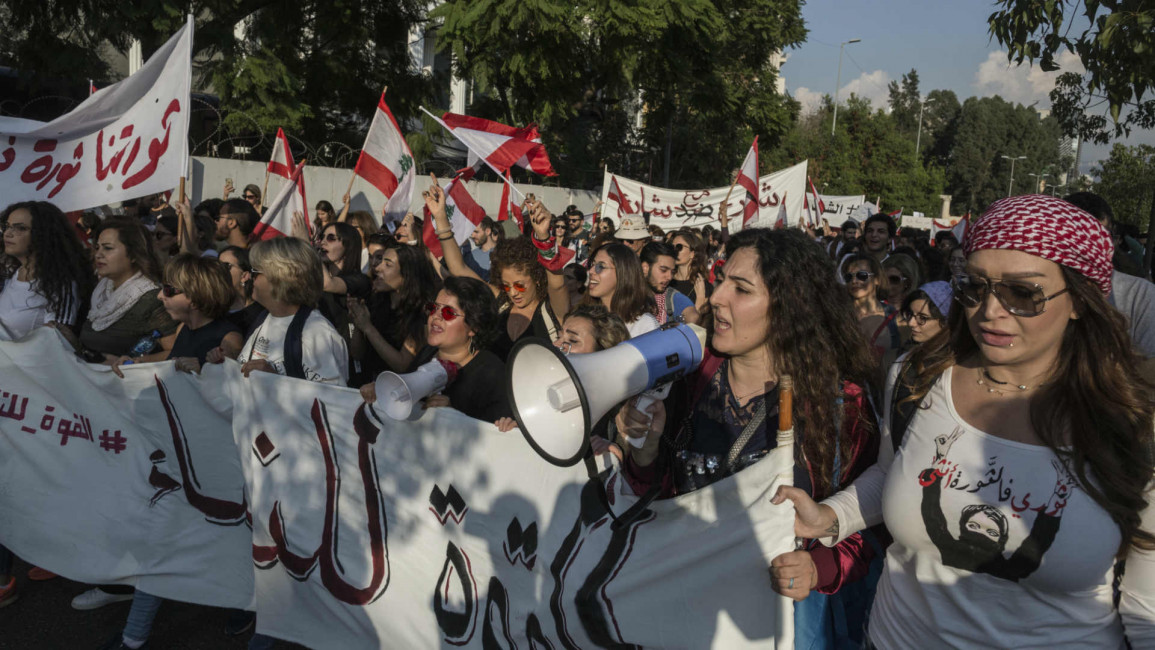'The revolution is female': Thousands march in Lebanon's nationwide 'Sunday of unity' demonstrations
Protesters are set to gather for the third Sunday in a row for demonstrations also being called “Sunday of pressure” - as the Lebanese public await the results from crisis talks among its leaders.
Large-scale feminist marches saw hundreds of women and their male allies marching for gender justice and an end to the country’s discriminatory personal status laws, as well as to affirm the position of women and LGBTQ people in the protest movement.
"The revolution is female," they chanted as they took to the streets of Beirut.
Comment: Hariri resigns, but the start of the revolution is not its end
Meanwhile earlier in the day, thousands rallied in in the town of Baabda, in support of President Michel Aoun, who addressed the country from the palace.
Fans of the president waved large Lebanese flags and orange-coloured banners in support of his party, the Free Patriotic Movement, in a show of sectarian support rarely seen in Lebanon’s recent rallies.
"We are here, General. We won't abandon you as long as we live," one poster read, responding to a cross-sectarian movement calling for an end to his term.
Twitter Post
|
Some Aoun supporters wore orange T-shirts while others held up portraits of the 84-year-old president.
"General Aoun is a reformist and sincere man - not corrupt nor a thief," said one supporter who gave her name as Diana.
"There has been corruption in the state for 30 years. The president isn't responsible. He's trying to fight against graft," she said.
In Baabda, Aoun supporters said they backed the general demands of protesters nationwide, but insisted the president was the only man able to bring about reforms.
Twitter Post
|
Despite Saturday’s crowds, the overriding demand of the protesters has been the resignation of the entire government and the sectarian power-sharing arrangement that underpins it and facilitates corruption.
One of the main chants heard at the protests has been "all of them means all of them", calling for the resignation of the entire political class without exception.
Aoun’s speech came under fire from activists for his attempts to blame the country’s economic crisis and political stagnation on others.
The octogenarian leader was also criticised for attributing part of the blame on Syrian refugees, often used in political rhetoric as a scapegoat for the nation’s myriad problems.
More than 25 percent of the Lebanese live in poverty, the World Bank says.
Economic growth in Lebanon has stalled in recent years in the wake of repeated political crises, compounded by an eight-year civil war in neighbouring Syria.
On Tuesday, Prime Minister Saad Hariri announced his cabinet would step down.
But it is still unclear what a new government will look like and if it will include independent technocrats as demanded by demonstrators.
Thousands of anti-government protesters flocked together in the northern city of Tripoli Saturday night, many from other parts of the country.
Agencies contributed to this report.
Follow us on Twitter and Instagram to stay connected



